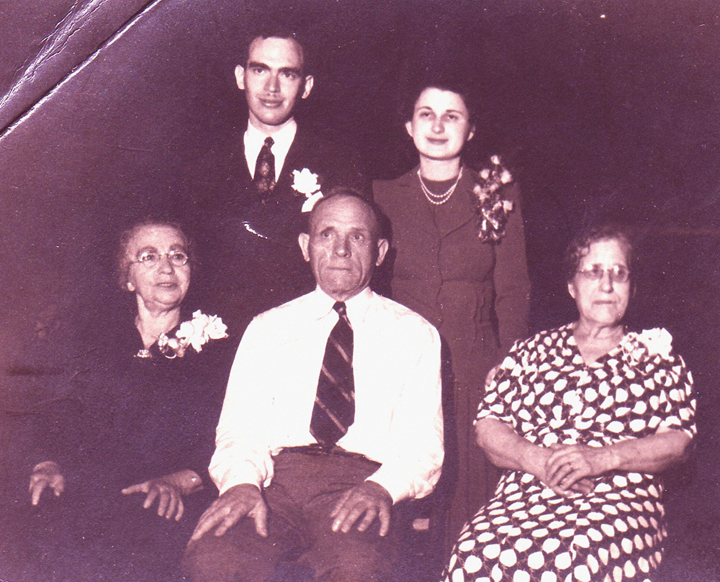
I have only a few memories of my grandmother, Anna, whom I called Bubbe.
Anna came to the United States from Poland in 1904. She entered through Ellis Island and went straight to Kansas City, Missouri, where she joined other immediate family members — the Wolf family — who had already settled there.
She met my grandfather-to-be, Mendel Karol, within a couple of years after her arrival. They married in 1907. They had four sons, my father being the youngest.
Anna ran a dry goods store from 1908 until 1939. One of my relatives often spoke about my grandmother’s engaging personality in greeting the public and in maintaining relationships with family and friends.
Anna was a well-documented resident, with her entry into the country chronicled at Ellis Island and her residency noted in the national census and in city directories. It seems that, for her, and for many other immigrants, there was not much of a push to formally naturalize as an American citizen, although my grandfather had done so in the mid-1920s.
Yet a major change in American life came when the United States Congress passed the Immigration Act of 1924. This piece of legislation set quotas restricting the annual entry of potential immigrants, especially from countries in Europe, to 2 percent of what the population was in 1890 of American residents from those particular countries. One consular authority of the time characterized Jews and other groups as “undesirable” in a report that supported the legislation, although the bill had to be based on countries of origin rather than ethnic or religious identity.
Had my grandparents arrived on American shores later than 1924, it is likely they would have been sent back home.
Still, my grandmother continued her life as a seemingly content resident, that is, until 1940.
That’s when the United States Congress passed the Alien Registration Act, which required all “aliens” to register between August and December of that year. One purpose of that piece of legislation was to prohibit certain “subversive activities.” The Act required residents who were not yet citizens to report at a local post office for an interview and to be fingerprinted.
My grandmother’s registration form, which I found among family papers, was likely filled out by my father, who may have accompanied my bubbe to the post office for her interview.
A very quiet life in a midwestern city was almost upended. It is likely that her change in status, from contributing community member (who belonged only to a “Jewish Mothers Club”) to being seen as a potential pariah, motivated my grandmother to apply for naturalization. She became a citizen in late 1941.
After studying the documents related to the Karols’ journey to citizenship, I came to appreciate, even more, all those people who seek to become contributing members of our communities, whether they are seeking new opportunity or are fleeing violence or persecution.
My grandmother’s story, and many others I believe, relates directly to what Father Gabriel Rochelle wrote in the June 22 edition of the Las Cruces Bulletin. He noted that faith values point to “inclusion of the tired and the poor, those who are exiled or seeking refuge in one way or another, those looking to make a better life for their children.”
So, I say to my grandmother: Thanks, Bubbe, for your journey, and for your influence on my parents and my early life. You taught me to be warm and welcoming, like you. You are one of the people who helped to make me a proud American.
Rabbi Larry Karol is a native of Kansas City, Missouri. Currently the rabbi of Temple Beth-El in Las Cruces, New Mexico, he grew up as a member of The Temple, Congregation B’nai Jehudah, where he became a Bar Mitzvah and was confirmed.


